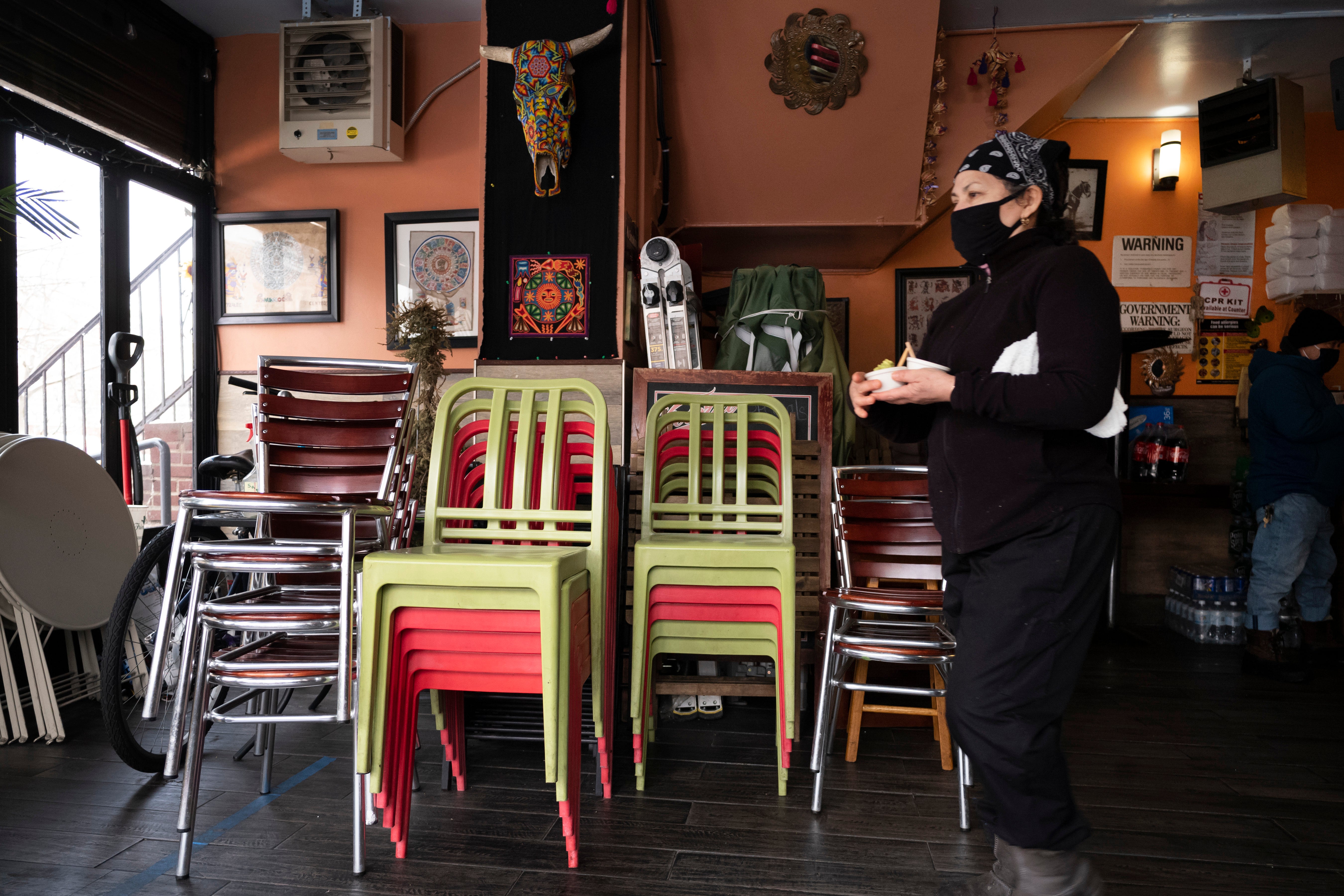Things to Know: States push their own relief packages
States are not willing to wait for more federal help and have been moving ahead with their own coronavirus relief packages

Your support helps us to tell the story
From reproductive rights to climate change to Big Tech, The Independent is on the ground when the story is developing. Whether it's investigating the financials of Elon Musk's pro-Trump PAC or producing our latest documentary, 'The A Word', which shines a light on the American women fighting for reproductive rights, we know how important it is to parse out the facts from the messaging.
At such a critical moment in US history, we need reporters on the ground. Your donation allows us to keep sending journalists to speak to both sides of the story.
The Independent is trusted by Americans across the entire political spectrum. And unlike many other quality news outlets, we choose not to lock Americans out of our reporting and analysis with paywalls. We believe quality journalism should be available to everyone, paid for by those who can afford it.
Your support makes all the difference.Here’s what’s happening Wednesday with the coronavirus pandemic in the U.S.:
THREE THINGS TO KNOW TODAY:
— States not willing to wait for pandemic financial relief from the federal government have taken matters into their own hands. Maryland and California recently approved help for small businesses, the poor, the jobless and those needing child care. New Mexico and Pennsylvania are also funneling grants directly to cash-starved businesses. The spending shows that many states have proved unexpectedly resilient during the pandemic. And it has provided fuel for critics who say they don’t need another massive infusion of cash from Congress. The Biden administration’s $1.9 trillion relief plan would send hundreds of billions of dollars to state and local governments.
— An analysis by U.S. regulators says Johnson & Johnson’s single-dose vaccine provides strong protection against severe COVID-19. The report Wednesday confirmed that overall the vaccine is about 66% effective at preventing moderate to severe COVID-19. On Friday, a panel of experts to the Food and Drug Administration will debate if the evidence is strong enough to recommend the long-anticipated shot. The FDA is expected to make a final decision within days. If the FDA clears the J&J shot for U.S. use, it won’t boost vaccine supplies significantly right away. Only a few million doses are expected to be ready for shipping in the first week.
— The predominantly Latino cities of Central Falls, Rhode Island, and Chelsea, Massachusetts, have been among their states’ hardest-hit communities in the pandemic. Rhode Island has opened up vaccinations to all Central Fall residents 18 or older, and city officials say they’re on pace to inoculate most residents by the summer. Massachusetts, meanwhile, hasn’t done the same for Chelsea or other hard-hit communities of color. Public health experts, civil rights groups and immigrant activists have complained for months that the state isn’t doing nearly enough to ensure that Black and Latino residents are inoculated.
THE NUMBERS: According to data through Tuesday from Johns Hopkins University, the seven-day rolling average for daily new cases in the U.S. fell over the past two weeks, from roughly 108,073 on Feb. 9 to 65,763 on Tuesday. Over the same period, the seven-day rolling average for daily new deaths also fell, from nearly 2,677 on Feb. 9 to about 2,019 on Tuesday.
QUOTABLE: “We know we need to focus on Black and brown communities,” said Dr. LaQuandra Nesbitt, the director of the health department in Washington, D.C. “Let’s not give up on communities of color being interested in the vaccine. Let’s continue to answer their questions. Let’s continue to be very thoughtful in how we answer their questions.”
ICYMI: Tennessee’s top health officials say that more than 2,400 doses of the COVID-19 vaccine in the state's most populous county have gone to waste over the past month. According to state findings announced Tuesday, local officials sat on tens of thousands of shots that were thought to have already gone into arms. The finding comes after the Department of Health launched an investigation into a recent report that severe winter storms caused 1,000 doses to be tossed in Shelby County, which encompasses Memphis. But Health Commissioner Lisa Piercey revealed that the problems were far more widespread. She said there were numerous issues dating back to Feb. 3.
ON THE HORIZON: Republican lawmakers pushing to spend public money to pay for private or home schooling say they are responding to parental frustration over lack of in-person schooling. Opponents of such vouchers say they will sap resources as schools try to help kids harmed by online school and other disruptions. There are fresh voucher proposals in states with already abundant subsidies for private and home schools and in states where there are none. Schools have been more likely to stay all-virtual in states controlled by Democrats. Yet the proposals appear more likely to pass in states controlled by Republicans.
___
Find AP’s full coverage of the coronavirus pandemic: https://apnews.com/hub/coronavirus-pandemic